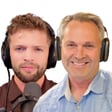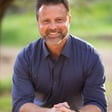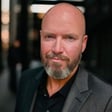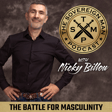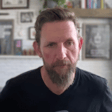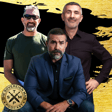
EP162: Jeff Friend - Why Men Need To Be Challenged
“I was in a space, a headspace of, not knowing if, I would go to sleep and wake up completely paralyzed.”
Imagine you have only four days left to live. What thoughts would race through your mind? How would you feel about the people closest to you? Think about the moments you’d cling to, and how deeply you’d cherish them, knowing time is slipping away. We often let days go by without reflecting on their fleeting nature, but what if every day was truly precious?
Picture this: a sudden health crisis—a deep chest infection that triggers an unexpected autoimmune disease, leaving them paralyzed from head to toe. This is Geon Beray Syndrome (GBS), a condition so severe that the heart and lungs can stop functioning at any moment. Imagine the fear of not knowing if you'll wake up the next day, completely paralyzed, teetering on the edge of life.
Jeff Friend is the creator of "60 Days to Live," a program designed to help people foster habits that can transform their lives. Whether it’s three weeks, 30 days, or 60 days, the key is in intentionally making changes that could alter the course of your life. Our guest faced a daily reality of uncertainty, where each night could be the last, yet found that even in those moments, it was easy to slip into old patterns. The lesson? Don’t wait for a crisis to treat every day like it’s a gift.
How does facing life's biggest challenges head-on can inspire growth and resilience. It’s a reminder to do hard things on purpose and to live with intention, not fear.
You’re invited to come to a Sovereign Circle meeting to experience it for yourself. To learn more, go to https://www.sovereignman.ca/. While you’re there, check out the Battle Ready program and check out the store for Sovereign Man t-shirts, hats, and books.
